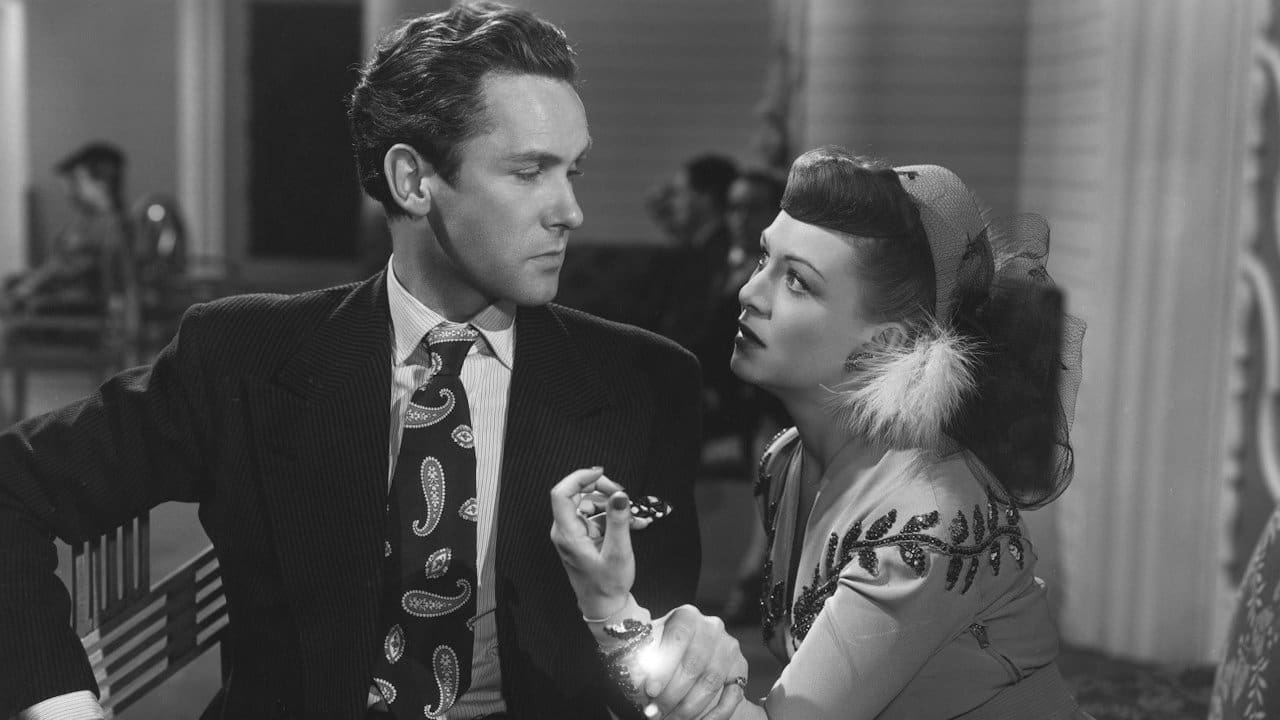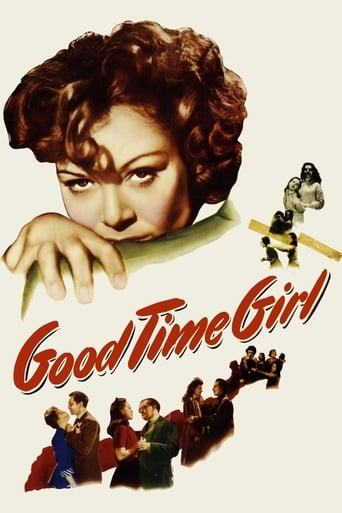

Good-Time Girl is directed by David MacDonald and collectively adapted to screenplay by Muriel Box, Sydney Box and Ted Willis from the novel Night Darkens the Street written by Arthur La Bern. It stars Jean Kent, Dennis Price, Herbert Lom, Bonar Collleano, Peter Glenville, Flora Robson and Jill Balcon. Music is by Lambert Williamson and Clifton Parker, and cinematography is by Stephen Dade. This is the story of Gwen Rawlings (Kent), a 16 year old British girl who ran away from home and met trouble around every corner she turned... The under represented genre of film dealing with juvenile female delinquency has always been a tricky subject for film makers to tackle, even more so back in the day as it were. Here in 1948 is one of the best of its kind, and this even after the BBFC enforced some tone downs of violent scenes and requested that a moral message framing device open and close the story. It's even thought that the Government of the time got involved, such is the wariness of how authority dealt with a troubled female teenager. The whole film is relentlessly bleak, even as young Gwen strides out with determination and stoic strength, her ebullience infectious, there's sadness or tragedy about to enter the fray. Her whole life spins out of control the moment she is caught returning a brooch she borrowed from the Pawn Shop where she works. She had been out dancing the night before and wanted to look smart, so she took the brooch thinking nobody would mind as long as it was put back the next day, but her boss catches her returning it and isn't as understanding as she had hoped. In fact he is prepared to turn the other cheek in return for sexual favours! To which she promptly says no and slaps him one. From this point on Gwen's life slips into a vortex of misery and disaster. After a savage beating by her father, who is incensed about her "theft" and sacking from the Pawn Shop; which is filmed skillfully by MacDonald who fades the scene to black, she runs away to start a new life, a 16 year old girl alone in the big city. She seems savvy enough, but she is quickly duped by a fellow lodger at her boardings (Glenville on wonderfully spiv oily form) and even though she lands a hat-check job at Max Vine's (Lom) nightclub, things quickly turn sour. Either by bad luck, bad judgement or just being around bad people, Gwen is on course to be wrongly sent to an Approved School, which is basically a euphemism for Girls Borstal it seems! The only bright spot in her life is Michael "Red" Farrell (Price), a genuinely kind man but one who is also married. While there at the "school" Gwen goes through metamorphism and turns into a warrior bad girl, a plot line that John Cromwell's 1950 film Caged would follow. She befriends the tough cookie "mommy" inmate, played by Daniel Day-Lewis' mom, Jill Balcon, and before you know it she is the hard nut who thinks of nothing to bullying other girls and escaping at the first chance she gets. Now she's a fully fledge escapee, a hardened hard drinker and smoker, sexually matured and venturing still further down life's dark alleyways. And worse is to come, because fate dictates that she again will fall in with the wrong people, but willingly so this time, until finally fate deals its fatal blow, a coup de grace that stuns with the bitterest of ironies. Cast are excellent, with Kent a revelation playing a girl ten years younger than her actual age. Direction is smart and brisk, while Dade's photography is always in the realm of film noir, with perpetual shadows and darkened streets, smoky clubs and depressingly foreboding institutions lighted accordingly. The message of the movie is a bit hazy, is Gwen's downfall the product of her torrid home life? A failure of the authorities to get her the help she needed? Or is it that Post War British Society had changed its outlook and was now looking after number one? Either way, Good-Time Girl is a biting bit of British noir, thrusting the female lead into a world where she is abused and used by those around her, harassed at regular intervals, and of course guided by that old devil of film noir, the vagaries of fate. 8.5/10
... View MoreWhen this film had been completed an official from the Home Office viewed it and as a result the Labour government tries to stop the film being released.The reason for this was the poor light in which the approved school system was shown.So the producers had to shoot the framing device with Flora Robson.It is clear that the authorities did not know what to do about teenagers.In fact this film shows Jean Kent's character in a favourable light and authority less so.After all because Kent has been beaten by her father and cant go home she is given 3 years in an approved school.So rather typical of the period Kent has a whale of a time till the last reel when she must pay for misdeeds.The last part of the film is based on real events which were portrayed in a later film with Emily Lloyd Pack.
... View MoreI note that one poster here has already noted the glaring holes in the plot though he or she might have added the fact that when, after a few months at most in Reform School Jean Kent escapes and attempts to reconnect with night-club owner Herbert Lom the doorman tells her that Lom is long gone and now has a club in Brighton. Cut to that same club in Brighton, up and running and clearly long-established. This is not only highly improbably but also essentially meaningless give that there was no reason plot-wise for this migration. On the other hand we have to be aware that audiences in the forties were far less demanding than we are today and as ample evidence suggests would swallow almost anything if the packaging was pretty enough. This is our old friend the Morality Tale writ large. Asked to 'have a word' with a confused young runaway (Diana Dors) before she is fully committed to a downward spiral, lady magistrate Flora Robson tells Dors what happened to good-time girl Jean Kent. This was, remember, the late forties and to paraphrase Raymond Chandler's remark that Alan Ladd was a small boy's idea of a tough guy Dors here is a virginal schoolgirl's idea of a tart. Jean Kent was a fine actress and only three or four years away from the best role of her career in the Terence Rattigan-Puffin Asquith The Browning Version and though all she had to do here was phone it in she did so via one of those white telephones beloved of Italian cinema. They wheeled out all the stalwarts of British cinema support groups and it was a fairly innocuous entry that did little harm and left no trace.
... View MoreWarning: spoilers. Gwen, a teenage girl leaves a brutal home and falls into bad company. Sent to reform school she gets wised up quickly, and embarks on a criminal career.The British *do* do sordid nicely! From the heroine's slum home through to the gangland nightclubs she comes to inhabit I was given the clear impression that her world was nasty, corrupt and dangerous. Jean Kent, the actress who played Gwen, brought the part off well too. She was convincingly innocent and rebellious in the beginning; convincingly hard and amoral at the end.The plot was fast paced and the script tight. The movie never bogged down at any point, possibly because it was tightly focused on the main character. The peripheral characters were neatly sketched in. Some verged on the edge of cliche, but since they were only there to move Gwen's story along, they never quite tipped over the edge.That being said, there are parts of the movie which are hokey. The first instance which struck me was the scene where Gwen's father thrashes her with his belt - it was quite plain to me that the actor was doing his best to miss Jean Kent. The framing story which surrounds the main plot seemed unnecessary and begged the question how the narrator of Gwen's story knew all the details of her career. I suspect it was put there to point out the moral to "Good Time Girl"'s original audience. I also suspect that the movie was originally promoted with slogans such as "From Today's Headlines!"
... View More